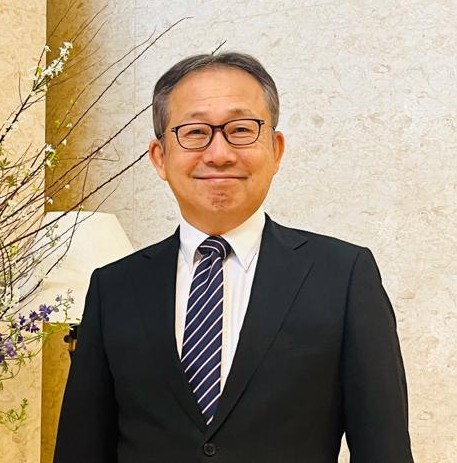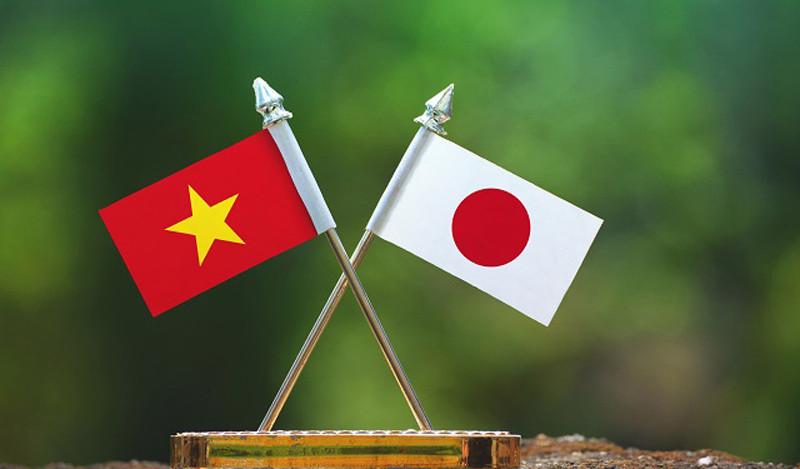With a staggering 5,200 projects and investment capital exceeding $71.5 billion, Japanese investors have firmly entrenched themselves across all corners of Vietnam. Their involvement spans critical sectors such as manufacturing and processing, electronics components, research and development (R&D), finance, biotechnology, quantum technology, AI, and modern healthcare.
Bilateral trade between Vietnam and Japan surpassed the $40 billion mark in the first eleven months of 2023, with Vietnam importing nearly $20 billion worth of goods. Japan holds the distinction of being Vietnam’s most prolific partner in terms of bilateral and multilateral free trade agreements (FTAs), which is testament to the robustness of their economic relationship.
“Vietnam holds a crucial position in the global supply chain for Japanese enterprises,” Mr. Takeo Nakajima, Head of the Hanoi Representative Office of the Japan External Trade Organization (JETRO), told a press conference announcing the release of the Survey on the Status of Japanese Foreign Direct Investment in 2023, organized by JETRO. “Whereas Vietnam was previously known as a market for low-cost manufacturing aimed at exports, it is now shifting towards producing high-value-added products. Japanese companies are increasingly focusing their investments on researching and developing new products in the country.”

Despite the economic headwinds encountered in 2023, both countries achieved significant milestones. “Trade volumes between Japan and Vietnam experienced a certain level of decline in 2023 due to various reasons, including the impact of the global economic downturn,” H.E. Yamada Takio, Ambassador of Japan to Vietnam, told VET / VnEconomy. “However, this is not solely Japan’s issue. Japan continues to be Vietnam’s fourth-largest trading partner. Furthermore, I would like to emphasize a distinct characteristic when compared to other major trading partners of Vietnam: the balance in export and import volumes between Vietnam and Japan. I believe this creates an extremely stable relationship for both parties.”
According to the Ambassador, Vietnam’s economic growth in 2023 stood at 5.05 per cent, with a 3.41 per cent year-on-year increase seen in the first three months. Though moderate, subsequent months saw faster growth, including 6.72 per cent in the final three months. He believes that further economic growth can be expected in 2024 based on Vietnam’s attractive features. Firstly, he highlighted the current excellent phase of Japan-Vietnam relations. In November, the two countries upgraded their relationship to a “Comprehensive Strategic Partnership for Peace and Prosperity in Asia and the World”. Economically, Vietnam is highly attractive, serving as a manufacturing hub suitable for the shifts in global supply chains. With a population of over 100 million people and an expanding middle-class, it is also a burgeoning consumer market. Japanese investment and business development activities are expected to become even more vibrant.
The JETRO survey also revealed that, regarding expected business profits in 2024 compared to 2023, 50.4 per cent of Japanese businesses responded with an optimistic outlook, with many hoping for improvements due to the recovery seen in 2023. In particular, the proportion of Japanese enterprises indicating business expansion in Vietnam was 56.7 per cent, a decline of 3.3 percentage points compared to 2022. Despite the continued high ambitions for expansion, the survey suggests that Vietnam is the only key ASEAN country where the expansion rate has decreased compared to the previous year.

Nevertheless, Mr. Nakajima still has high regard for Vietnam’s investment environment and the potential for cooperation between Japanese and Vietnamese companies. In the survey of parent companies in Japan, Japanese enterprises still consider Vietnam to be one of the most attractive markets, ranking second only to the US. “Over 2,000 Japanese companies are currently investing and doing business in Vietnam; the highest number among ASEAN countries,” he said. “Japanese enterprises continue to greatly value Vietnam’s investment and business environment, which is characterized by stable political and social conditions and abundant human resources.”
Vietnam also still faces limitations that affect the expansion plans and operations of Japanese businesses. “For Japanese enterprises to further expand, addressing issues such as ensuring stable electricity supply and streamlining administrative procedures is crucial,” said Ambassador Takio. “Japan is ready to assist in resolving these issues.” According to the JETRO survey, Japanese companies also highlighted difficulties with opaque administrative procedures that consume significant time and resources.
Another noteworthy point is the issue of human resources. According to the survey, 42.7 per cent of Japanese companies in Vietnam reported facing a shortage of workers. Specifically, JETRO noted that, by industry, the shortage rate in the non-manufacturing sector was 45.2 per cent, while over 60 per cent of companies in retail, information and communication, finance, insurance, education, and healthcare were grappling with workforce shortages.
“The low localization rate is a weakness but also an opportunity for Japanese companies to expand their investments,” Mr. Nakajima believes. “In its role, JETRO is ready to bridge Japanese and Vietnamese enterprises. Companies need to improve and enhance the quality of technology and expertise to facilitate connectivity between the two sides.”
In November 2023, the two countries issued a joint statement elevating Japan-Vietnam relations to a “Comprehensive Strategic Partnership for Peace and Prosperity in Asia and the World” while also confirming specific cooperation directions for the next 50 years. As outlined in the joint statement, Vietnam is an important partner for Japan in realizing the “Free and Open Indo-Pacific (FOIP)” initiative.
“I hope that Japan and Vietnam will closely cooperate to establish a free and open order based on the rule of law, independence, and the sovereignty of nations being respected to ensure stability and prosperity in the Indo-Pacific region and the world,” Ambassador Takio said in regard to his expectations for future cooperation between the two countries.
“In terms of the economy, as affirmed with Prime Minister Kishida Fumio during Prime Minister Pham Minh Chinh’s visit to Japan in December, both the public and private sectors in Japan aim to enhance cooperation with Vietnam, especially in the areas of green transformation (GX), innovation, and digital transformation (DX), industrialization, modernization, and human resources training, to jointly develop as comprehensive strategic partners looking towards the next 50 years.”









 Google translate
Google translate